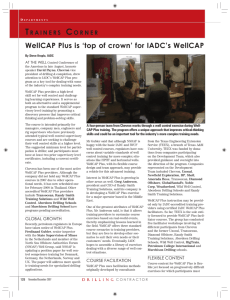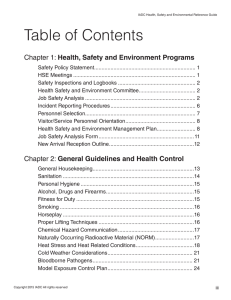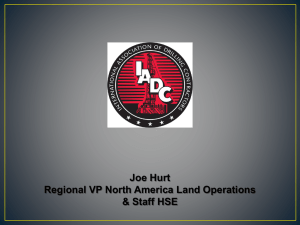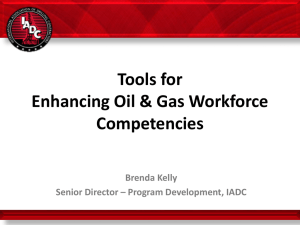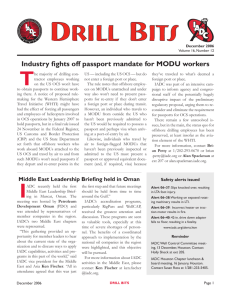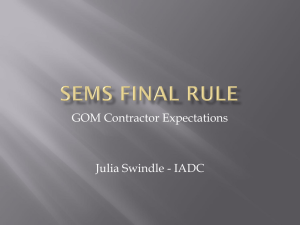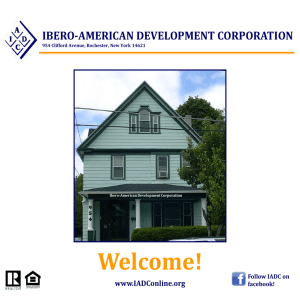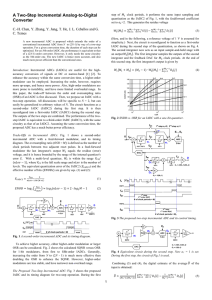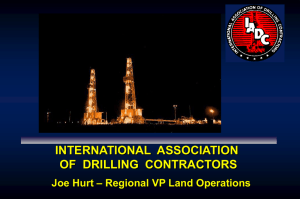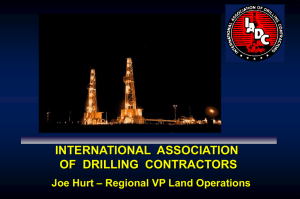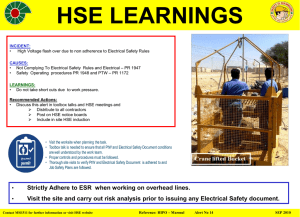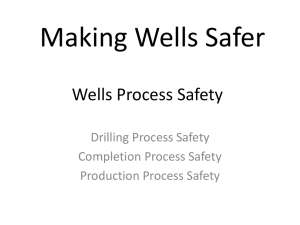17 June Congressional Testimony
advertisement
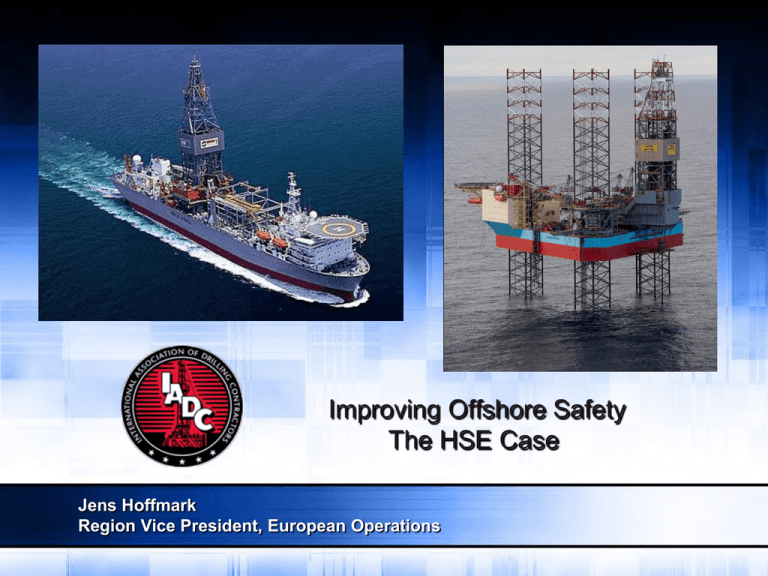
Improving Offshore Safety The HSE Case Jens Hoffmark Region Vice President, European Operations Presentation of IADC and it’s Present Activities • • • • • Founded in 1940 - Headoffice Houston, USA President Dr. Lee Hunt Offices in Washington, Denmark, Dubai, Holland, and Thailand Total staff about 40 – More than 4000 members Divisions: – Government Affairs – Business Development – Publishing – Operations & Accreditation – Offshore Technical and Regulatory Affairs – HSE Issues – Conferences – IADC, Membership, Publications & Chapter Liason – Corporate Communicaton – Financial Services – Office Services Training and Accreditation System: • WellCAP • HSE Rig Pass • UBO Rig Pass • WellCAP PLUS • Ballast Control/Stability • Competence Assurance • Training & Operations Passport • Drilling Industry Training Accreditation System • Offshore Competency Committees: • • • • • • • • • • • • • • • • • • Committee Chair's Guide Contracts Ethics and Corporate Compliance European Operations Forum Environmental Policy Advisory Panel Government Affairs HSE Information Technology Jackup Rig Maintenance Offshore Rig Moving Tax Training Technical Publications Underbalanced Operations & Managed Pressure Drilling Well Control Well Servicing IADC’s Mission • IADC’s mission is to improve industry health, safety and environmental practices; advance drilling and completion technology; and champion responsible standards, practices, legislation and regulations that provide for safe, efficient and environmentally sound drilling operations worldwide. IADC holds Accredited Observer status at the International Maritime Organization and the International Seabed Authority, specialized agencies of the United Nations. The Association is a leader in developing standards for industry training, notably its Well Control Accreditation Program (WellCAP)® and rig-floor orientation program, RIG PASS® among others. IADC HSE Case Guidelines http://www.iadc.org/hsecase/index.html Goals for the IADC Guidelines • Provide good industry practice for structured procedure for an enterprise to assess and manage risks • Provide a good industry practice that, if followed, will provide a case for safety acceptable to member’s clients • Provide a good industry practice that, if followed, will provide a case for safety acceptable to regulators • Reduce proliferation of differing approaches by new Safety Case adoptees How were they developed? • Underlying Safety Management System based on the IMO’s International Safety Management (ISM) Code (SOLAS Chapter IX) • “Best Practice” amalgamation of requirements from national legislation and regulation on safety cases, e.g, HSE, PSA, NOPSA, etc. • Incorporation of industry standards and oil company practices for hazard identification and control • Updated in consideration of changes to regulatory requirements and industry standards Most Recent Updates • Updated December 2010 to address identified shortcomings with respect to: • Bridging arrangements • Particular risks of deepwater wells • Evaluation of routes used to access Temporary Safe Rescue (if provided) and evacuation systems BOEMRE SEMS Final Rule • Safety and Environmental Management System of API RP 75 incorporated by reference • § 250.1911 – You must ensure the development and implementation of a hazards analysis (facility level) and a job safety analysis (operations/task level) for all of your facilities. For this subpart, facilities include all types of offshore structures permanently or temporarily attached to the seabed (i.e., mobile offshore drilling units . . . . • It is IADC’s assessment that the SEMS rule constitutes a de facto requirement for a Safety Case Recently Completed and Ongoing Work • Completed Gap Analysis of IADC Guidelines against API RP 75 • Completed Gap Analysis of IADC Guidelines against BOEMRE’s SEMS Final Rule • Working with API to develop the API - IADC Well Construction Interface Document (WCID) • Developing text of proposed amendments to the IADC Guidelines to address identified gaps for consideration at annual Users Group meeting (30 September – Amsterdam) US-Specific Enhancements • API - IADC Well Construction Interface Document • Traditional HSE-Management System bridging arrangement plus: • Well basis of design • Well execution plan • Critical well activity risk assessments • Similar efforts being considered in other regions Conclusion IADC is committed to: • Facilitating sharing of lessons learned from the Montara and Macondo incidents • Working with U.S. industry stakeholders to facilitate WCID and HSE Case understanding and implementation • Working with industry stakeholders in other regions to enhance safety through development of good industry practice on bridging arrangements LTI Rate Rec. Rate DART Rate Man-hours 2009 2008 2007 Man-hours 0 2006 0 2005 10000000 2004 1 2003 20000000 2002 2 2001 30000000 2000 3 1999 40000000 1998 4 1997 50000000 1996 5 1995 60000000 1994 6 1993 Incidence Rate Historical performance – US offshore
